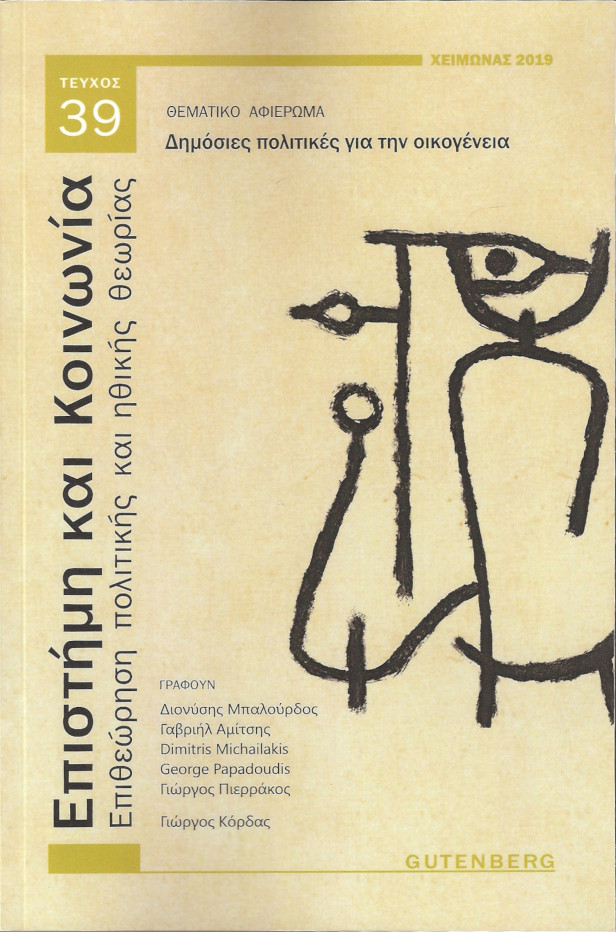Swedish family policy – facts and prospects

Published:
Dec 1, 2019
Keywords:
Welfare state family policy
Abstract
Sweden has since 1970’s step-by-step developed several foundational welfare policies that have helped to encourage equality. Family policy is based on the dual-earner family and asserts the same rights and obligations regarding family and labour market work for both partners.Sweden was the first country to introduce paid parental leave also to fathers in 1974. Swedish family policies encourage both parents to work and share the upbringing of children. Parents receive a generous parental leave package, have flexible employment choices, and a relatively low gender wage gap, while children have high quality childcare, and other services, and a substantial child benefit programme. A brief review of the Swedish welfare state is discussed parallel with critical appraisals of family policies
Article Details
- How to Cite
-
Michailakis, D. (2019). Swedish family policy – facts and prospects. Science and Society: Journal of Political and Moral Theory, 39, 78–94. https://doi.org/10.12681/sas.20945
- Section
- Articles

This work is licensed under a Creative Commons Attribution-NonCommercial-ShareAlike 4.0 International License.
Authors who publish with this journal agree to the following terms:- Authors retain copyright and grant the journal right of first publication with the work simultaneously licensed under a Creative Commons Attribution-NonCommercial-ShareAlike License that allows others to share the work, not for commercial purposes, with an acknowledgement of the work's authorship and initial publication in this journal. If you remix, transform, or build upon the material, you must distribute your contributions under the same license as the original.
- Authors are able to enter into separate, additional contractual arrangements for the non-exclusive distribution of the journal's published version of the work (e.g., post it to an institutional repository or publish it in a book), with an acknowledgement of its initial publication in this journal.
- Authors are permitted and encouraged to post their work online (e.g., in institutional repositories or on their website) prior to and during the submission process, as it can lead to productive exchanges, as well as earlier and greater citation of published work (See The Effect of Open Access).
Downloads
Download data is not yet available.


